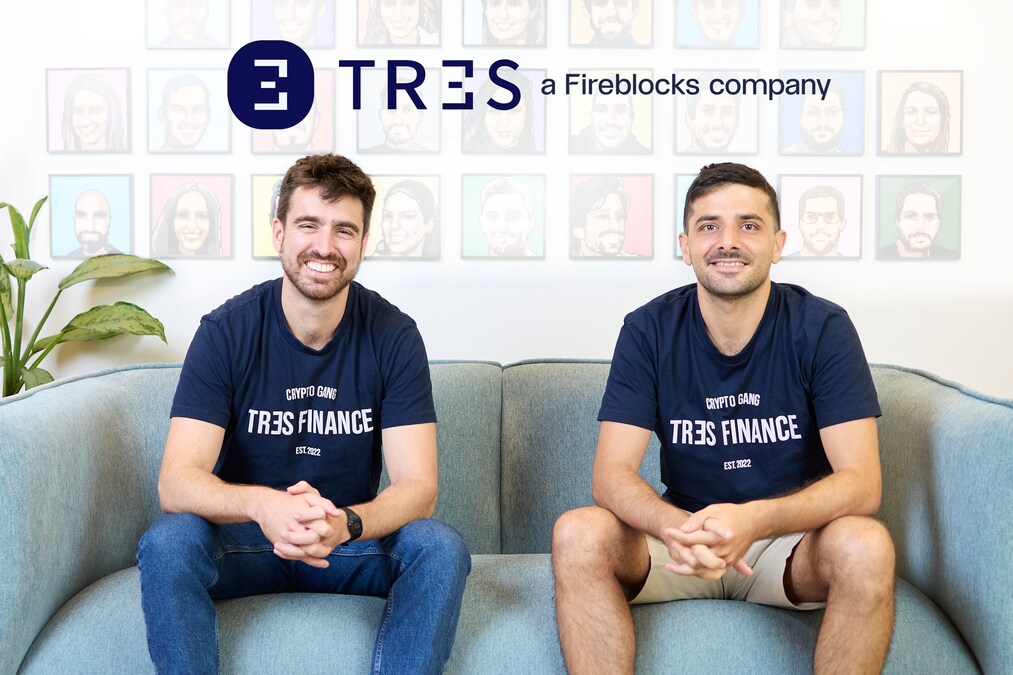In 2014, after many years of speculation, the Internal Revenue Service (IRS) issued guidance in Notice 2014-21 that classified cryptocurrency as property[1], not currency, for federal income tax purposes. But according to the requirements of the Foreign Account Tax Compliance Act (FATCA), which requires foreign financial institutions to provide the IRS with information about accounts held by U.S. taxpayers or foreign entities controlled by U.S. taxpayers, cryptocurrency exchanges, in the ordinary course of doing business, are considered financial institutions.
On Nov. 30, 2016, a federal judge in the Northern District of California granted an IRS application to serve a “John Doe” summons[2] on Coinbase Inc., which operates a cryptocurrency wallet and exchange business. The summons asked Coinbase to identify all U.S. customers who transferred convertible cryptocurrency from 2013 to 2015. Why? Because the IRS is trying to get cryptocurrency owners to report the value of their wallets to the federal government.
So, an argument could be made that the IRS is treating cryptocurrency as both property and currency.
Reeling from this dichotomy, the American Institute of Certified Public Accountants recommended in a June 2016 letter[3] to the IRS that cryptocurrency accounts be reported in the summary information section of Form 8938, Statement of Specified Foreign Financial Assets, which breaks with the IRS’s 2014 guidance that cryptocurrency be treated as property.
If a taxpayer were to hold gold overseas, which is considered property by the IRS and, more specifically, a commodity, there is nothing in the Tax Code, that requires the taxpayer to report the value of the gold to the IRS every year. Further, if a taxpayer owns residential property, rental property, or any other asset deemed property overseas, there also is no requirement for the taxpayer to report the fair market value of that property to the IRS.
In the case of cryptocurrency, we have a dichotomy where the IRS is treating the currency as property for income taxes, and then asking that the property be reported as a foreign bank account.
Property is divided into certain sections within the Internal Revenue Code (IRC) that determine everything from how the property is treated at sale, to how the property is depreciated, to the nature and character of the gain on sale of the asset. For instance, IRC §1231 property (real or depreciable business property held for more than one year) is treated as capital in nature when sold for a profit[4], but is treated as ordinary when the property is sold for a loss[5].
IRC §1245 property, on the other hand, is treated as ordinary in nature[6]. §1245 property encompasses most types of property. IRC §1250 property covers everything else. IRC §1250 states that a gain from selling real property that has been depreciated should be taxed as ordinary income, to the extent that the accumulated depreciation exceeds the depreciation calculated using the straight-line method, which is the most basic depreciation method used on an income statement. § 1250 bases the amount of tax due on the type of property, such as residential or nonresidential property, and on how many months the property was owned.[7]
IRS guidance is silent on which section of the tax code cryptocurrency falls into. For instance, IRC §1031 allows for the like-kind exchange of certain property. §1031 exchanges typically are done with real estate or business assets. However, with the classification of cryptocurrency as property by the IRS, many tax professionals will argue that cryptocurrency can be exchanged using IRC §1031.
IRC §1031 Exchange
IRC §1031 is a deferral mechanism that allows a taxpayer who exchanges investment property with like-kind investment property to defer any gain until such property is exchanged for property that is not of a like kind, such as cash. Instead of being recognized, or taxable, the gains realized upon the exchange of like-kind property are tracked in the asset’s basis. When the asset is ultimately exchanged for property that is not of a like kind, the taxpayer will recognize gain to the extent that the sale proceeds exceed the asset’s basis.
If a taxpayer’s property has a taxable basis of $5 and is exchanged for property worth $4, the additional $1 is added to the new basis and is recognized, or taxable, when the replacement property is sold.
There are numerous court cases, IRS private letter rulings, and other administrative guidance that aim to determine whether two investment properties are similar enough to be considered like kind. In practice, the government is the true arbiter of what assets are like kind and what assets aren’t.[8].
Whenever you sell business or investment property and you have a gain, you generally have to pay tax on the gain at the time of sale. IRC §1031 provides an exception and allows you to postpone paying tax on the gain if you reinvest the proceeds in similar property as part of a qualifying like-kind exchange. Gain deferred in a like-kind exchange under IRC §1031 is tax-deferred, but it is not tax-free[9].
The exchange can include like-kind property exclusively or it can include like-kind property along with cash, liabilities, and property that are not like kind. If you receive cash, relief from debt, or property that is not like kind, however, you may trigger some taxable gain in the year of the exchange. There can be both deferred and recognized gain in the same transaction when a taxpayer exchanges for like-kind property of lesser value.
Who Qualifies for a §1031 Exchange?
Owners of investment and business property may qualify for a §1031 deferral. Individuals, C corporations, S corporations, partnerships (general or limited), limited liability companies, trusts, and any other taxpaying entity may set up an exchange of business or investment properties for business or investment properties under §1031.
What Are the Different Structures of a §1031 Exchange?
To accomplish a §1031 exchange, there must be an exchange of properties. The simplest type of §1031 exchange is a simultaneous swap of one property for another.
Deferred exchanges are more complex but allow flexibility. They allow the taxpayer to dispose of property and subsequently acquire one or more other like-kind replacement properties.
To qualify as a §1031 exchange, a deferred exchange must be distinguished from the case of a taxpayer simply selling one property and using the proceeds to purchase another property (which is a taxable transaction). Rather, in a deferred exchange, the disposition of the relinquished property and acquisition of the replacement property must be mutually dependent parts of an integrated transaction constituting an exchange of property. Taxpayers engaging in deferred exchanges generally use exchange facilitators under exchange agreements pursuant to rules provided in the income tax regulations.
A reverse exchange is somewhat more complex than a deferred exchange. It involves the acquisition of replacement property through an exchange accommodation titleholder, with whom it is parked for no more than 180 days. During this parking period, the taxpayer disposes of its relinquished property to close the exchange.
What Property Qualifies for a Like-Kind Exchange?
Both the relinquished property the taxpayer sells and the replacement property the taxpayer buys must meet certain requirements.
Both properties must be held for use in a trade or business or for investment. Property used primarily for personal use, like a primary residence or a vacation home, does not qualify for like-kind exchange treatment.
Both properties must be similar enough to qualify as “like kind.” Like-kind property is property of the same nature, character, or class. Quality or grade does not matter. Most real estate will be like kind to other real estate. For example, real property that is improved with a residential rental house is like kind to vacant land. One exception for real estate is that property within the United States is not like kind to property outside of the United States. Also, improvements that are conveyed without land are not of like kind to land.
Real property and personal property can both qualify as exchange properties under §1031, but real property can never be like kind to personal property. In personal property exchanges, the rules pertaining to what qualifies as like kind are more restrictive than the rules pertaining to real property. For example, cars are not like kind to trucks.
Finally, certain types of property are specifically excluded from §1031 treatment. §1031 does not apply to exchanges of:
- Inventory or stock in trade.
- Stocks, bonds, or notes.
- Other securities or debt.
- Partnership interests.
- Certificates of trust.
What Are the Time Limits to Complete a §1031 Deferred Like-Kind Exchange?
While a like-kind exchange does not have to be a simultaneous swap of properties, the taxpayer must meet two time limits or the entire gain will be taxable. These limits cannot be extended for any circumstance or hardship except in the case of presidentially declared disasters.
The first limit is that the taxpayer has 45 days from the date he or she sells the relinquished property to identify potential replacement properties. The identification must be in writing, signed by the taxpayer, and delivered to a person involved in the exchange, like the seller of the replacement property or the qualified intermediary. However, notice to the taxpayer’s attorney, real estate agent, accountant, or similar persons acting as the taxpayer’s agent is not sufficient.
Replacement properties must be clearly described in the written identification. In the case of real estate, this means a legal description, street address, or distinguishable name. IRS guidelines must be followed for the maximum number and value of properties that can be identified.
The second limit is that the replacement property must be received and the exchange completed no later than 180 days after the sale of the exchanged property, or the due date (with extensions) of the income tax return for the tax year in which the relinquished property was sold, whichever is earlier. The replacement property received must be substantially the same as property identified within the 45-day limit described above.
Are There Restrictions for Deferred and Reverse Exchanges?
It is important to know that taking control of cash or other proceeds before the exchange is complete may disqualify the entire transaction from like-kind exchange treatment and make all gain immediately taxable.
If cash or other proceeds that are not like-kind property are received at the conclusion of the exchange, the transaction will still qualify as a like-kind exchange. Gain may be taxable but only to the extent of the proceeds that are not like-kind property.
One way to avoid premature receipt of cash or other proceeds is to use a qualified intermediary or other exchange facilitator to hold those proceeds until the exchange is complete.
A taxpayer cannot act as his or her own facilitator. In addition, the taxpayer’s agent (including real estate agent or broker, investment banker or broker, accountant, attorney, employee, or anyone who has worked for the taxpayer in those capacities within the previous two years) cannot act as his or her facilitator.
Be careful when selecting a qualified intermediary as there have been recent incidents of intermediaries declaring bankruptcy or otherwise being unable to meet their contractual obligations to the taxpayer. These situations have resulted in taxpayers not meeting the strict timelines set for a deferred or reverse exchange, thereby disqualifying the transaction from §1031 deferral of gain. The gain may be taxable in the current year, while any losses the taxpayer suffered would be considered under separate tax code sections.
How Does a Taxpayer Compute the Basis in the New Property?
It is critical that the taxpayer and his or her tax representative adjust and track basis correctly to comply with §1031 regulations.
Gain is deferred, but not forgiven, in a like-kind exchange. The taxpayer must calculate and keep track of his or her basis in the new property acquired in the exchange.
The basis of property acquired in a §1031 exchange is the basis of the property given up with some adjustments. This transfer of basis from the relinquished to the replacement property preserves the deferred gain for later recognition. A collateral affect is that the resulting depreciable basis is generally lower than what would otherwise be available if the replacement property were acquired in a taxable transaction.
When the replacement property is ultimately sold (not as part of another exchange), the original deferred gain, plus any additional gain realized since the purchase of the replacement property, is subject to tax.
How Does a Taxpayer Report §1031 Like-Kind Exchanges to the IRS?
The taxpayer must report an exchange to the IRS on Form 8824, Like-Kind Exchanges, and file it with his or her tax return for the year in which the exchange occurred.
Form 8824 asks for:
- Descriptions of the properties exchanged.
- Dates that properties were identified and transferred.
- Any relationship between the parties to the exchange.
- Value of the like-kind and other property received.
- Gain or loss on sale of other (non-like-kind) property given up.
- Cash received or paid; liabilities relieved or assumed.
- Adjusted basis of like-kind property given up; realized gain.
- Taxpayers who do not specifically follow the rules for like-kind exchanges may be held liable for taxes, penalties, and interest on their transactions.
Cryptocurrency Not Specifically Excluded from §1031
Listed above were some examples of assets that cannot be exchanged under §1031. Absent from this list is cryptocurrency, or virtual currency. A taxpayer may not do a §1031 exchange when exchanging a U.S. dollar for a euro. However, the IRS is classifying cryptocurrency as property, not currency, except for the purposes of Foreign Bank Account Reporting (FBAR) regulations, where cryptocurrency is treated as a currency.
The Simple Fact of the Matter
Tax accountants can be very conservative when it comes to IRS regulations or guidance. However, in 2014, the IRS decided to classify cryptocurrency as property[10]. In the notice, the agency specifically mentions that cryptocurrency is not a currency.
As property that is not specifically excluded from IRC §1031, the exchange of one cryptocurrency for another would appear to qualify for an IRC §1031 Exchange.
A Contrary Opinion on the §1031 Exchange of Cryptocurrency
The obvious question is whether different cryptocurrencies qualify as “like-kind property.” Presently, there is nothing in the tax code or regulations that specifically answers this question, either in the affirmative or the negative.
For instance, one Bitcoin that is exchanged for one Ethereum, may not be considered like-kind in the eyes of the IRS. However, when you discuss the definition of like-kind property, the matter becomes fuzzier.
Like-kind property is property of the same nature, character or class. Quality or grade does not matter. Most real estate will be like-kind to other real estate. For example, real property that is improved with a residential rental house is like-kind to vacant land. One exception for real estate is that property within the United States is not like-kind to property outside of the United States. Also, improvements that are conveyed without land are not of like kind to land.[11]
With that definition the “like-kind” status for cryptocurrency is exceedingly uncertain. Although there is nothing directly opposing it, there is also nothing directly supporting it. This could set up the taxpayer that elects to adopt the IRC §1031 Exchange rules to cryptocurrency, could have the IRS deny such an adoption. This denial would then set the up the transaction to be denied. Denial would result in the taxpayer having to pay back taxes, plus interest and penalties.
One option that is open to the taxpayer that would like to try an IRC § 1031 Exchange with cryptocurrency, to obtain an opinion letter from a tax attorney or a licensed tax professional. If the letter is done correctly, it could shield the taxpayer from penalties. Of course, that would be in the event that the Service rejected the IRC § 1031 deferment.
The coins themselves could fall under one of two categories depending on what you consider their basic definition to be and how you use your digital tokens. The IRS could consider them income and therefore they would fall under the Income Tax code and be taxed at that rate. Or, the coins would be considered capital gains if the holder makes profits off of long-term investments into cryptocurrency. Both of these codes could potentially be rewritten to include the new currency but there would need to be a major overhaul of the general tax code, ensuring the regulations are written in a way that they pertain directly to digital assets.[12]
CONCLUSION
The savviness of these transactions cannot be doubted. However, the Service has remained silent on the simple matter of whether cryptocurrency qualifies, by its treatment by the IRS, to qualify for an IRC § 1031 Exchange. Until the IRS addresses this issue, my gut says to steer clear of these transactions.
==================
[1] IR 2014-36. IRS Virtual Currency Guidance: Virtual Currency Is Treated as Property for U.S. Federal Tax Purposes; General Rules for Property Transactions Apply. March 25, 2014.
[2] In the context of tax laws, a John Doe summons is issued by the IRS to a third party to provide information on an unnamed, unknown taxpayer with potential tax liability.
[3] American Institute of Certified Public Accountants. Comments on Notice 2014-21: Virtual Currency Guidance. June 10, 2016.
[4] Meaning the profit is taxed at capital gains rates of 0%, 15%, or 20%, depending on the tax bracket of the person selling the asset.
[5] Ordinary losses can be taken against ordinary income. The treatment of the losses as ordinary at the sale of §1231 property is considered a great thing to many tax professionals.
[6] If §1245 property is held for less than a year, when sold, the gain is treated as ordinary and taxed at ordinary income tax rates. If the property is held for a year and a day, and a profit is made on the sale, then the gain is taxed at 0%, 15%, or 20%, depending on the tax bracket of the taxpayer. Any losses that are incurred from the sale can reduce the capital gains to zero. If the losses exceed the gain, then a person can deduct a maximum of $3,000 per year, until the loss is used up.
[7] IRS Publication 527, Residential Rental Property (Including Rental of Vacation Homes). 2017.
[8] Klasing, David. Virtual Currency and Section 1031 – A Retraction and New Position. Sept. 1, 2017.
[9] Internal Revenue Service. Like-Kind Exchanges Under IRC Code Section 1031. February 2008.
[10] IR 2014-24
[11] FS-2008-18, February 2008
[12] Wood, Alex RS Classification of Cryptocurrency as Property
Thanks for reading CPA Practice Advisor!
Subscribe Already registered? Log In
Need more information? Read the FAQs
Tags: Digital Currency




